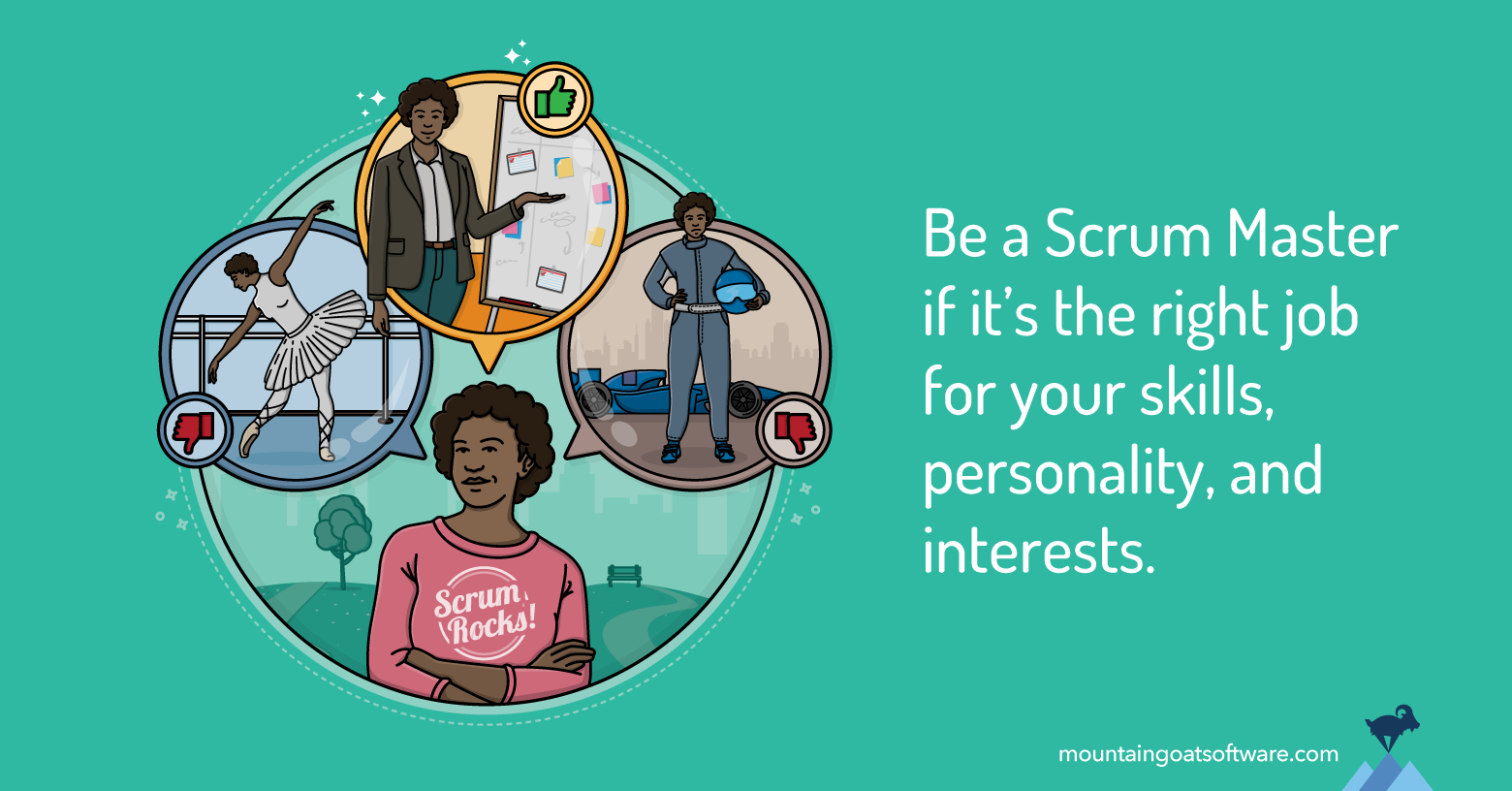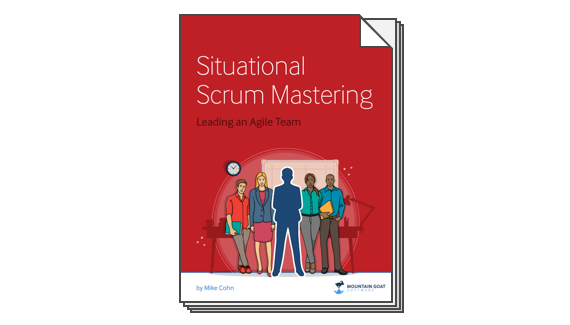Perhaps you’re thinking of pursuing a career as a Scrum Master. Or perhaps you’ve recently been moved into that role and are wondering if being a Scrum Master is right for you.
The first question people ask is, Is Scrum Master a good job? Yes. There are plenty of good reasons to become a Scrum Master; the job is in demand and pays well.
A better question would be, Is the Scrum Master role right for me? The most important—perhaps the only—reason to become a Scrum Master is that it's the right job for your skills, personality, and interests. After all, I may want to become a K-pop singer because it pays well and is in demand, but there would be more than a few things holding me back from a career topping the pop charts.
Here are seven questions you can ask yourself to see if you’re more suited to a career as a Scrum Master than I am to one as a teen idol.
1. Do You Like Helping Others?
Scrum Masters need to enjoy helping others. This cannot be something a Scrum Master does grudgingly. I think helping can be particularly challenging if the Scrum Master is in a dual role and expected to contribute also as a programmer, tester, designer, or similar. Someone in that role starts work each morning thinking, “Hmm, should I do whatever I got into this industry to do? Or should I solve other peoples’ problems?”
Even with good intentions, it’s hard for many of us to want to remove impediments and solve someone else’s problems rather than make progress on our tasks. Yet that is exactly what a great Scrum Master will do.
2. Do You Need to Be in the Spotlight?
I sometimes compare a Scrum Master to golf caddy. A good caddy can be instrumental to the success of a golfer. But caddies aren’t in it for their own glory. Great caddies do whatever they can to help their golfers look good rather than seeking to make themselves look good.
Scrum Masters act much the same way. For example, during a review in which the Scrum team has much to be proud of, a great Scrum Master fades into the background while the team receives the praise.
3. Are You a Good Listener?
We all know that a Scrum Master helps remove impediments to a team’s progress and productivity. That often means listening, asking clarifying questions, and then solving the problem. But other times it means just listening: letting a team member vent about something.
Scrum Masters know when to leap into action and when to listen sympathetically.
I was once coaching a very large organization through their transition to agile. Part of that job entailed hiring and contracting with some experienced Scrum Masters to help those within the company who were moving into the role.
Pat was one of the experienced Scrum Masters we hired. A couple of months after hiring him, the senior vice president in charge of the transition asked me if Pat was any good. I confidently replied that Pat was doing a great job.
I asked the SVP why he was curious about Pat. He said it was because Pat didn’t talk much in meetings. I had to point out that we weren’t paying Pat by the word and that when he did say something it was often brilliant.
4. Can You Influence Without Authority?
Influencing without authority is one of the hardest lessons for many Scrum Masters to, ahem, master. I find this especially true for those who transition to Scrum Master from roles that do have authority, such as project manager and tech lead.
Despite being hard to learn, influencing without authority is an important skill for all good Scrum Masters. If you enjoy leading this way, count that as a point in favor of a career as a Scrum Master.
On the other hand, if you’d prefer to say, “Just do it because I told you so,” don’t rule out becoming a Scrum Master. In my earliest leadership roles that was my unfortunate, poorly chosen style. You can overcome it.
5. Are You Comfortable with Uncertainty?
Scrum teams often exist amid uncertainty. The product backlog is incomplete. The architecture emerges over time. Teams are taught to embrace uncertainty.
For leaders, though, this is often uncomfortable. It requires trusting the team—often trusting team members more than in the pre-agile past.
A good Scrum Master doesn’t need to be excited about uncertainty, but does have to be comfortable living in it. If you’re the type who secretly wants to eliminate all uncertainty, you’ll either be frustrated as a Scrum Master or will drive your team crazy in pursuit of an impossible goal.
6. Can You Handle Conflict Well?
Agile teams are used on an organization’s hardest challenges—the projects that won’t succeed any other way. Add that to the strong personalities found on many development teams and there will be conflict.
Minimally, team members will differ on how to solve problems. More fundamentally, you may have to deal with personality clashes among team members or unrealistic demands from stakeholders.
You don’t need to love conflict—most people don’t. But in service to your team you will need to handle it.
7. Are You Technical Enough?
To be a great Scrum Master you need to know something about the work the team performs. You don’t necessarily need to be able to do one of their jobs or to have done it in the past.
You need to know enough to speak their language fluently and to empathize with the challenges of their work.
If you don’t have a deep understanding of the work from having done one of the team’s jobs previously, asking good questions is a great substitute.
Learn the types of questions that help your team think through problems. If overlooking a certain type of work has burned them in the past, ask about it when they appear to have forgotten it. You might ask, for example, “Are there any implications to the database?” if database changes have been overlooked before.
You don’t need to be technical, whatever that may mean for your products. But you need to be able to intelligently discuss progress and problems with the team.
Last update: July 15th, 2024









